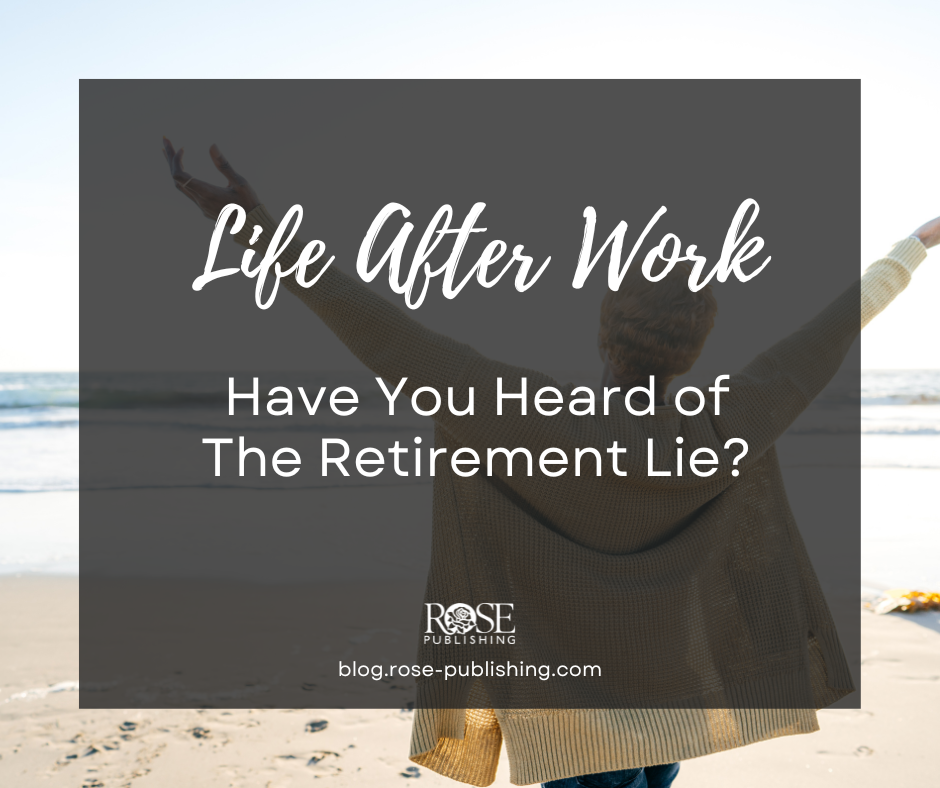
Have you heard of the retirement lie? Joel Malick and Alex Lippert are the newest authors to join Rose Publishing/Aspire Press. They’re here to help us avoid buying into the lie and refocus on what truly matters.
Our society has distracted us, placing too much emphasis on money and “happiness,” with very little focus on what we fundamentally need. We are created to thrive in a purpose-breathing life. You’re not just a “what did you use to do?” You are more resourced than ever at this stage. You have a lot more time. You have plenty of hard-earned skill and street smarts. You are likely far better off financially than in other seasons of life. These attributes aid your ability to pursue your true purpose, find the truth in the retirement lie, and live out a life worthy of dreams. You are here to do meaningful things; it’s just challenging to know where to begin.
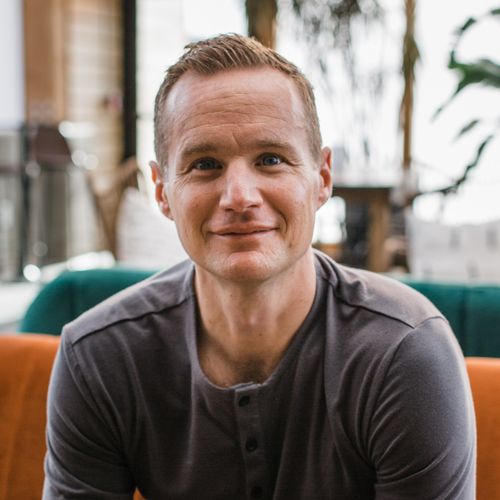
Joel and Alex are here to get us back on track and thinking out our retirement season in the right way. One that isn’t so focused on a retirement of withdraw and retreat, but instead, one that’s full of purpose and fulfillment.
Whether you’re retired or in the midst of retirement planning, Afterwork is an honest discussion about the retirement lie and how to live a future worthy of your dreams.
They join us today, for an author Q&A all about Afterwork, releasing in May 2023.
- What is the retirement lie?
Alex: The “lie” is that a self-focused life of comfort is a “good” retirement. Comfort alone can’t feed a life of purpose. Society tells us “now it’s time for you to enjoy the fruits of your labor, sit back, relax, and fill your days ahead with a vacation type lifestyle.” This approach may feel great at first, when you still have that pre-retirement work ethic mindset. But as the days turn to months, the supposed happiness of comfort and indulgence loses its sheen and emptiness creeps in…
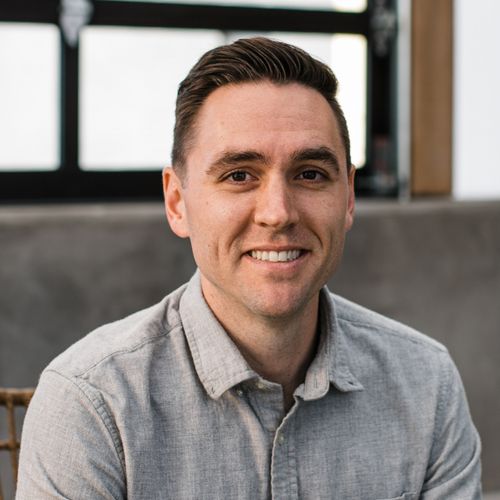
Joel: The retirement lie is that a self-focused and withdrawn retirement is going to be fulfilling. We refer to it as a lie because it’s something we believe that we eventually find to be false. This has a range of different effects on people. Some have dreamed so intently about this life of self-seeking and leisure that they leave feeling betrayed by 30 years of supposed dreaming. Others have a sense that this next season could make them feel somewhat more useless than they used to be but aren’t sure what to do about it. The first step is recognizing that the retirement society depicts for us will leave us feeling unfulfilled and useless. The exact opposite should be true. We just have to approach it correctly.
- Why did you write Afterwork?
Alex: Synonyms for the word “retire” include: recede, withdraw, retreat. Is that what you want to do?
After decades of having retirement conversation with clients, friends and family, we felt called to write afterwork to address the real issues that secretly are facing so many. Like you, we personally need passion projects in life that give us purpose and Afterwork is one of those projects. We set out to change as many lives as possible because it’s such a tragedy for our wisest and most well-resourced (time and money) people to let those attributes drift off into the sunset.
Joel: I’m passionate about seeing people become the best version of themselves. It pains me when highly capable people (of which we all are), squander our hard-earned resources on unworthy tasks and wind up feeling useless in the process.
- Is there anything wrong with making a life change such as retirement and “doing nothing?”
Alex: Some think doing nothing sounds glorious when they are in the midst of life’s craziness – careers, children, family. But I’ve noticed in my own life that the things that came easy were rarely fulfilling. It’s the challenge and adventure that make lasting memories and give us a true sense of accomplishment. This is true in retirement too.
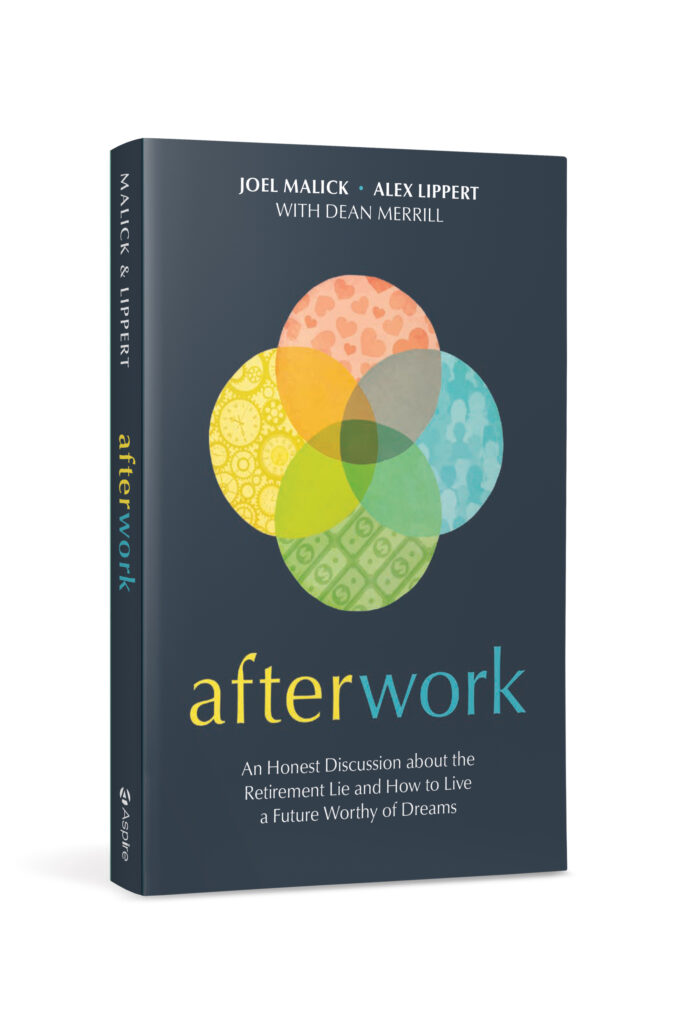
Joel: Many people want to retire and just “do nothing.” I think we can all relate to this on some level. We have a consensus because we are exhausted. We poured ourselves into our career or calling and what we really need is a nice long break. You think you want to do nothing, but once you are decompressed, have all the “honey-do’s” complete, and the first winter rolls in, you’re going to find yourself wondering “what now?” We suggest taking some time off, but then be ready to launch into something you’ve already planned. You need to retire to something and not just from something.
- How can a person tell when the retirement lie is taking its toll—when is it time to rethink their pattern of retirement and life transition?
Alex: Society convinces us of so many empty dreams. But, when we walk through the door of retirement or for instance, when your children leave the house, we can feel empty and aimless. Hemingway wrote in The Sun Also Rises “How did you go bankrupt?” Two ways: gradually and then suddenly.” It’s no different from a fulfillment standpoint if you buy into the retirement lie.
Joel: You know you’ve bought the retirement lie the moment you realize that you’ve become busy with activities that aren’t building into the lives of others. If you look at your last week’s schedule and notice there’s not a single action on there that has improved someone else’s life, then you’re there. You have resigned to living in the “just okay.”
- Who should read Afterwork and when is the best time to read it?
Alex: Many of the disciplines in Afterwork are applicable to anyone at any time, but the book will feel timelier for those who are retired or who are beginning to ponder what retirement and the second half of their life could be.
Joel: Ideally, it would be read about 10 years out from retirement. It’s important that you plan your purpose before you realize you’re not enjoying the retirement you’ve been sold. One of our colleagues started nice and early. This gave him time to figure out what areas he enjoyed and what areas just didn’t fit. You don’t want to be figuring this out on the fly. You’ve probably heard the saying “you can’t build the plane in the air.” By “kicking the tires” over a few years, our friend learned that he really enjoyed prison ministry, and a specific niche of teaching inmates the “7 Habits of Highly Effective People.” Now, he’s entering retirement with momentum, ready to enjoy the first 3-6 months of downtime, but then launch into his calling.
- Is Afterwork a book title or does it convey something broader? (“afterwork mindset” or “afterwork disciplines”)
Alex: Afterwork isn’t simply about retiring from a career. It’s broader than that.. It alludes to the concept that there’s a new season ahead, a graduation of sorts. You never tell the college graduate “Ok, you’ve done it, now sit back and relax!”. The question is what will you do next, and can it be your greatest season yet? We want to encourage people to think of retirement the same way.
Joel: Afterwork is a state of mind. A season when people think that the best of what they have to offer has passed and now they are resigned to a lesser role. The disciplines in our book are designed to be the trestle on which you can build your unique retirement purpose.
- Is Afterwork just “more work to do” after the formal career stage of life is over?
Alex: These disciplines aren’t another “to-do” list in life. While disciplines can seem like work at the onset, they actually become habits and mindsets that become a part of you and can create so much fulfillment.
Joel: It’s not easy, but it’s not work. Work is having to drudge through a daily mental conversation that sounds like this, “should I just go back to work? Why am I here?” Or, what on earth am I going to do to fill 16 hours today?”
- What have you found to be some of the healthiest outcomes in people who live with an “afterwork mindset?”
Alex: The afterwork mindset propels people in ways they never imagined. Those that clearly are in pursuit of purpose generally can better weather the storms that life throws at them. And the afterwork mindsets generally has a substantial focus on impacting others as opposed to self.
Joel: There are studies that reveal that when people make good foundational choices (continue to learn, stay connected, journal, movement, faith) they have greater fulfillment and better mental and physical health. Well balanced would be the best way to think of the results. Plenty of down time that can be truly enjoyed because of the texture they’ve created in their lives.
- Is there a spiritual component or outcome in Afterwork?
Alex: To us faith is such a foundational part of our existence that it must be fed, to take a quote from C.S. Lewis, like any discipline. You’ve never arrived at faith, it’s a lifelong process that offers immense meaning to life if you have the courage to allow it.
Joel: There is a spiritual component to afterwork. It was one of the top priorities of the book. But we wanted to do it very thoughtfully and winsomely so we could keep a non-believing reader engaged throughout and ultimately open a door to a pursuit of faith.
- Do you have a personal dream for Afterwork?
Alex: My dream is that afterwork changes the narrative about retirement, thereby helping an untold number of people avoid a static existence. I dream that it encourages them to tirelessly seek out purpose in their lives so that one day they can examine their life and know it was a life well lived. They can leave a legacy that affects generations to come.
Joel: My dream for afterwork is big. I want it to change an unimaginable amount of lives by calling people to pursue the greatest version of themselves. I want readers to one day be able to look back and say, “wow, what a fulfilling adventure that was… glad I traded my old dream for this new one.”
Afterwork: An Honest Discussion about the Retirement Lie and How to Live a Future Worthy of Dreams by Joel Malick and Alex Lippert
Retirement. Downsizing. Selling your business. Children leaving the nest. Layoffs. A major health event. Losing a loved one. Important life transitions remind us of what once “was,” leaving large gaps of free time and less to look forward to in the future. Afterwork acknowledges these tectonic shifts and offers revealing insights, powerful disciplines, and practical applications to help you step forward into a new and remarkably fulfilling season—regardless of how you’ve defined “work.”


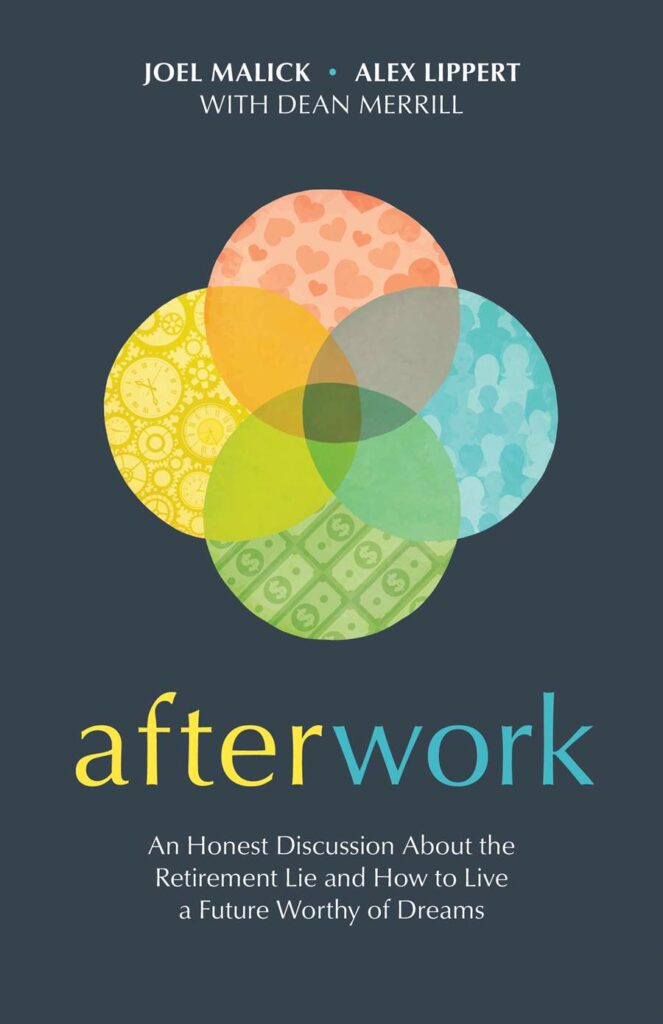

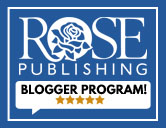
Pingback: Life After Work: The First Step | Rose Publishing Blog